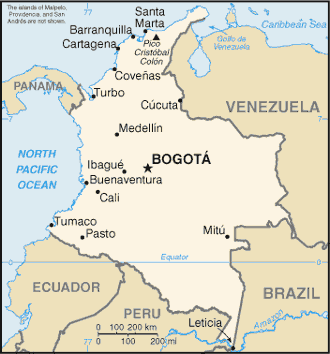NewsDesk @infectiousdiseasenews
An alert was issued in the department of Antioquia, Colombia due to the increase in cases of leptospirosis, a disease transmitted by rodents to humans and that, if not caught early, it can be fatal.

In the capital city of Medellín, some areas have seen large accumulations of waste have become recurrent and in some cases are part of the urban landscape, a place conducive to rodents.
To date, the municipalities of most concern are Medellín, with 70 confirmed cases, Apartadó (54 cases), Turbo (29 cases) and Puerto Berrío (18 cases).
The National Institute of Health published in its Weekly Epidemiological Bulletin that to date in 2021, 2,269 cases of leptospirosis have been confirmed in 288 municipalities of the country.
14 deaths related to the disease have been reported. Cali, Bogotá and Medellín are the cities with the highest number of registered cases.
The departments that have registered the most cases in 2021 are: Antioquia (398 cases), Tolima (166), Risaralda (158), Valle del Cauca (133), Cali (130), Barranquilla (96), Bogotá (96), Córdoba (86), Cartagena (85) and Cundinamarca (83).
Leptospirosis is a bacterial disease. People (and animals) can get infected when they are exposed to the urine of infected animals. They can also get infected from water, soil, or food contaminated with infected animal urine. Leptospirosis bacteria can enter the body through skin or mucous membranes (eyes, nose, or mouth).
Symptoms include fever, chills, headache, muscle aches, vomiting, stomach pain, diarrhea, jaundice (yellow eyes and skin), red eyes, and skin rash. Without treatment, leptospirosis can lead to kidney damage, meningitis (inflammation of the membrane around the brain and spinal cord), liver failure, respiratory distress, and even death.
CDC recommends the following to prevent leptospirosis:
- Avoid contact with fresh water or wet soil, as it could be contaminated with animal urine. Don’t wade through, swim in, drink, or swallow water from lakes, rivers, ponds or streams.
- Do not walk outside barefoot. Wear waterproof protective clothing, especially footwear, if you must have contact with water or wet soil.
- Cover any cuts or scratches with waterproof bandages.


3 thoughts on “Medellín: Alert issued for increased cases of leptospirosis”